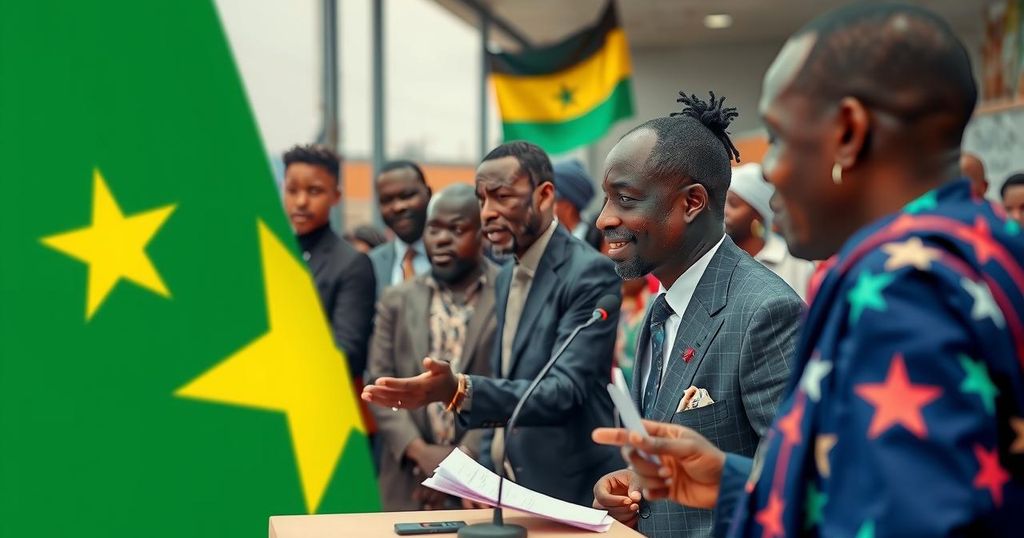Senegal’s Elections: A Resounding Triumph for Democracy

Senegal’s recent snap legislative elections reflect a significant triumph for democracy, characterized by high voter turnout and peaceful transitions of power. Following President Sall’s controversial election delay, new President Bassirou Diomaye Faye’s establishment underscores the resilience of Senegal’s democratic institutions. This transition reinforces the importance of constitutional governance amidst underlying challenges of corruption and governance deficiencies, showcasing the electorate’s commitment to democratic principles.
Senegal’s snap legislative election on November 17, called unexpectedly by President Bassirou Diomaye Faye, represents a significant moment for the nation’s democratic resilience. Following a turbulent period under former President Macky Sall, who initially postponed elections, the country’s democratic institutions have emerged stronger. Faye’s ascension, coupled with a high voter turnout of 61.3%, illustrates the populace’s commitment to constitutional governance and the efficacy of democratic processes in facilitating leadership transitions. The legislative elections provided a platform for citizens to express their political preferences peacefully, contrasting sharply with the civil unrest that preceded them. Notably, opposition leaders, including former President Sall, accepted the results graciously, underscoring a spirit of democratic cooperation. This transition illustrates Senegal’s ability to uphold democratic principles, emphasizing the importance of peaceful political engagement and the rule of law. Despite Senegal’s robust electoral framework, challenges remain; these include lingering issues of corruption, clientelism, and governance deficiencies. However, the nation has demonstrated a capacity to navigate these challenges effectively, maintaining stability through regular elections and adherence to constitutional mandates. With international support, particularly from organizations like the African Union, Senegal continues to foster growth in its democratic institutions. To fortify democracy, Senegal must prioritize transparency, uphold term limits, and promote judicial independence. Additionally, the state must emphasize inclusive governance and electoral integrity. Such principles are critical not only for maintaining public trust but also for providing citizens with a legitimate avenue for political participation. The lessons from Senegal highlight the significance of civil engagement and the role of effective processes in ensuring democratic sustainability. Ultimately, Senegal’s recent electoral exercise serves as a beacon for democratic progress across the continent. The peaceful transition of power signifies a commitment to enduring democratic values, showing how a dedicated citizenry can affirm their voice through the ballot box. The elections reaffirm the necessity of vigilance against corruption and the importance of safeguarding the integrity of democratic institutions. As such, Senegal stands as a model for other nations navigating the complexities of democracy, illustrating the collective resolve required to sustain and nurture democratic ideals.
Senegal has a notable history of democratic governance, characterized by regular elections and peaceful transitions of power. The recent political upheaval and civil unrest stemmed from former President Macky Sall’s controversial decision to delay elections and attempt an unconstitutional third term. The situation prompted widespread protests, enlightening the fragility of Senegal’s democratic structures. The eventual re-election of opposition candidate Bassirou Diomaye Faye reflects a renewed commitment to uphold democratic principles during challenging times. High voter turnout during the elections signals the engagement of Senegalese citizens in their democratic processes, contrasting well with other African nations facing instability.
Senegal’s recent elections underscore the resilience of its democratic institutions, demonstrating the populace’s commitment to upholding democratic values through peaceful electoral processes. The successful transition of power to President Bassirou Diomaye Faye signifies a noteworthy moment in Senegal’s political landscape, further solidifying the essential role of inclusive governance, rule of law, and civic engagement in sustaining democracy. As Senegal navigates challenges ahead, adherence to foundational democratic principles will be crucial for maintaining trust and political stability.
Original Source: theconversation.com







